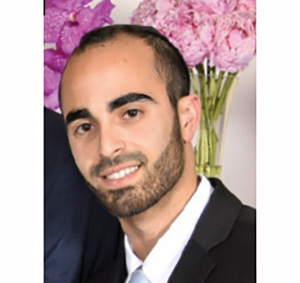
When referring to the Leviim, the Torah uses an interesting word that appears in a few of those references: “And I have hereby taken the Leviim from among (mitoch) the bnei Yisrael… (Bamidbar 3:12); “Take the Leviim from among (mitoch) bnei Yisrael… (Beha’alotcha 8:6); “For they are given over, given over to me from among (mitoch) bnei Yisrael (ibid 8:16). [See also ibid 8:14 and 19]. What does this language of mitoch come to connote? R’ Yosef Chaim Sonnenfeld explains that the Torah wishes to impart the message that neither the Leviim nor anyone else should not come to think they are distinct from the rest of the Jewish nation. Rather, they must realize, and others must view them, as full-fledged members of the community of bnei Yisrael. They come from among—mitoch—the rest of bnei Yisrael.
Why would the Leviim potentially come to think of themselves as distinct from the rest of the Jewish nation, and why would others come to potentially think the same? R’ Dovid Hoffman explains that the tribe of Levi was challenged on two realms: as opposed to the other tribes, the tribe of Levi was not granted their own autonomous portion of Eretz Yisrael. This deprivation in contrast to the rest of the nation may make them seem on a lower level than the rest of the nation. On the other hand, the tribe of Levi was granted special privileges in the realm of spirituality that the rest of the nation was not granted. This may make them seem greater and distinct from the rest of the nation. In both of these respects, the Torah comes to inform us that despite the lack of privilege in regard to land, and despite their unique privilege in regard to certain spiritual affairs, the tribe of Levi is nevertheless an equal member of the entirety of the Jewish people.
On both an individual level and societal level, the challenge of privilege and role is intensely grappled with. One source of this confusion emanates from the blindsightedness of role/privilege versus equality/individual worthiness. In a society where the external has become so much of a focus, some tend to think that the role you are designated to play is the definition of your esteem and worthiness as a human being. Many have therefore come to create a societal push where roles can be mixed so that no one feels “less than.” The obvious blunder in this progression is that one’s level of equality as a human has zero to do with his or her role. On an individual level as well, sometimes we may feel less than other people who play bigger and seemingly more important roles or who are involved in occupations or positions that seem more respectable. Once again, a cognitive division needs to be implemented to differentiate between a given task or position in life versus one’s level of worthiness and equality. In short, role and privilege are what you do as opposed to defining who and what you are. The tribe of Levi were denied certain privileges while also granted special roles, but yet, they and us are warned numerous times to not mix privilege and role with equality and worthiness.
But I think we need to focus on another aspect of this idea: Rav Noach Weinberg notes that this week’s parsha describes the structure and hierarchy of the Jewish people, and he asks: Why did the Torah wait until the construction of the Mishkan to delineate these matters? He answers that when appointing an individual or tribe to a position of leadership and prestige, there is a risk that other people would feel diminished. The Mishkan, which brought the palpable presence of Hashem, mitigated this potential drawback because by constructing the Mishkan first and placing it at the center of the Jewish people, Hashem was giving the people a tangible reminder not to be distracted by the positions or prestige of others, but to focus on what really counts: our relationship with Him. Once that realization is in place, Hashem can implement a hierarchy of positions without impinging on anyone’s sense of worth.
This idea from Rav Noach is the crucial point in this whole discussion: Wherever Hashem puts you in life you are meant to uplift that situation and see how you can enhance your personal connection with Hashem; that’s essentially the role within the role, i.e., the real role. Hashem puts every person in different life-settings, and the point is not where they are or what they do, but rather who they become in that life-setting. Hashem gives each person a unique set of responsibilities, demands, and missions that he or she is meant to attain and accomplish. It’s not about what role you play but about how you play your role.
A person should take pride in any role they play—no matter what that role is—because Hashem felt that no one but you is able to fill that role, and thus He is expecting you to roll with it with confidence and responsibility. Many people get hung up in feelings of inferiority based on the role Hashem wants them to play in relations to the roles others play. We learn that not only should role and privilege not distract us, but rather the focus of our pursuits is realizing the gift within the role, understanding the unique pride of how only you can fulfill it and no one else, and mainly how this role you are meant to play is exactly the place where Hashem is waiting for you to connect with Him as best as you can.
By Binyamin Benji
Binyamin Benji learns in Yeshivas Rabbeinu Yitzchak Elchanan. He holds an MSW and is the author of the weekly Torah Talk in the Sephardic Congregation of Paramus’ newsletter. He can be reached at benjibenji26@gmail.com.











